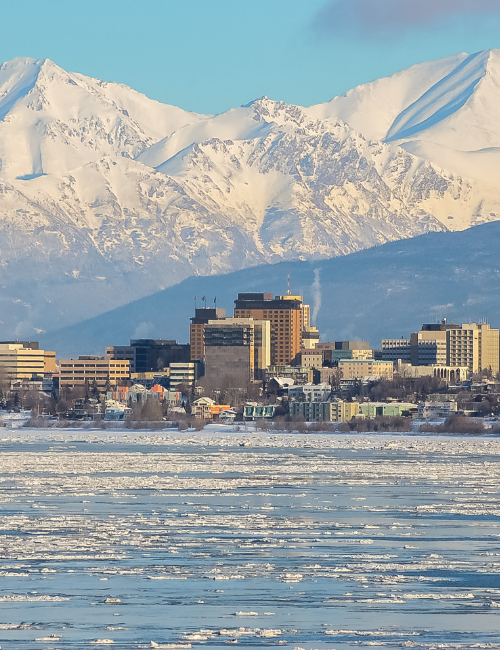
Understanding Homeowners Associations: Benefits and Drawbacks
Homeowners Associations (HOAs) are common in areas like Anchorage and have their advantages and disadvantages which residents must carefully evaluate. First, common areas and amenities like parks and pools, are well maintained, which in turn improves the quality of life for residents and augments property values.
They enforce rules that preserve neighborhood aesthetics like overgrown lawns and disruptive exterior changes. However, these benefits are equally balanced with certain disadvantages that are likely to make some homeowners look for ways to opt out.
HOAs restrict property changes which are a limitation to the personal freedom of homeowners. Moreover, homeowners need to pay regular dues that directly fund the HOA’s activities and maintenance efforts.
Frustration among residents may occur for a variety of reasons, for instance, disputes over the enforcement of rules, major projects with special assessments, or discontent with the enforcement of HOA policies. In Anchorage, the need for understanding these considerations becomes indispensable for homeowners who wish to have more housing autonomy away from HOA governance, something Anchorage Home Buyers can help navigate with expert guidance.
Common Rules and Regulations Enforced by HOAs

Homeowners’ Associations (HOAs) in Anchorage typically apply a set of rules and policies which are aimed at preserving the appealing visual features and the value of real estate within the community. Common regulations associated with the HOA can include the discretionary policies on the painting of the house, the selection of the flowers and shrubs, and any physical changes to the house which may be structural.
Most of the HOAs also set rules on the control of space, restricting locations of dwellings where cars are parked and forbidding the parking of other automobiles such as boats and RVs in the drive ways. Regulations on noise levels are usually another common HOA restriction. These rules are intended to foster a harmonious atmosphere and may include quiet hours, limitation on any of the boisterous activities in the vicinity.
In addition, rules on domestic animals may also be established to control the number of pets allowed in a household, and control of certain animals which are not allowed, such as dogs. For breaches of the policies, examination of the breaches which is routinely done may involve imposition of fine, or other forms of disciplinary action.
Familiarity of such rules becomes important to the homeowners seeking to move out and relocate to other places in the City of Anchorage as this helps them understand the level of supervision they will encounter.
Differences Between Mandatory and Voluntary HOAs
It is important to know the distinction between mandatory and voluntary Homeowners Associations (HOAs) when contemplating how to opt out of an HOA in Anchorage. Mandatory HOAs compel all property owners within a specified locality to join and pay dues alongside compliance with regular property upkeep and appearance maintenance and specific guidelines.
With mandatory HOAs, there is legal enforcement of the rules, so opting out is a heavily burdensome legal change to undo governance at the community level. Unlike mandatory HOAs, voluntary HOAs offer flexibility since participation is not compulsory.
In a voluntary HOA, membership is associated with the convenience of using community facilities and attending events without incurring mandatory fees, unlike mandatory HOAs. The focus of this discussion is to address the discrepancies that matter most to eligible homeowners in Anchorage interested in relocating to enjoy flexibility and opting out of HOA arrangement.
Key Questions to Ask Before Joining a Homeowners Association
Checking the right questions in Anchorage’s Homeowners Association (HOA) requires a nuanced approach in both seeking the answers and acknowledging the obligations that each response presents. Start by inquiring about the nuances and the governance mechanisms that define the neighborhood, as these would govern anything from the yard maintenance and property aesthetics to noise to more community-centric matters. More auxiliary to the core matters, the social and community engagements would require a more detailed approach in seeking intentionality in the interactions beyond the self.
Understanding the financial health of the HOA requires investigating the fiscal state of the HOA. Ask about the HOA’s budget, reserve funds, and any potential special assessments. Clarifying how dues are calculated and if there are foreshadowed increases in the near term provides a hassle-free financial experience.
To understand the value proposition in these dues, investigate what amenities and services are offered. Having an understanding of the governance structure is equally wise- knowing the organizational hierarchy provides clarity on who the community as a whole would interact with, as well as the conflict management routines in the association.
In Anchove, it would be desirable to ask about the HOA and its ongoing disputes with other entities and the legal matters as these would be financially as well as socially taxing.
Pros and Cons of Living in an HOA Community

As with any location, residing in Anchorage has its upsides and downsides in the context of a homeowners association (HOA). Enhancing property appreciation is a distinguishing advantage when an HOA offers well-kept shared spaces and enforces uniform standards across the community.
In addition, HOA communities strive to maintain order in their neighborhoods and thus provide a structured environment with rules which help enhance the aesthetic and the overall orderliness of the community—an additional plus. Moreover, these types of communities often come with additional features like swimming pools, parks, and even clubhouses, improving the quality of life.
Residents must, however, pay HOA fees, which are often Automatic payments having a base fee to pay for shared resources and services. This change is understandably welcomed; however, a few homeowners may find these HOA rules curbing their imagination when it comes to personalizing their properties and making them a bit intrusive when it comes to making decisions on outer appearances.
Certainly, feeling disenfranchised and unjustly subjected to rules around boundary lines can be a consequence of living with an HOA. Such feelings are not unheard of especially when rules are not followed and enforcement is with a heavy hand. All in all, living in an HOA property comes with many conveniences as well as many restrictions relative to choosing to live freely which is the appeal for many.
Navigating Hoa Fees and Assessments in Anchorage
Successfully navigating HOA fees and assessments in Anchorage requires one to grasp the comprehensive regulations surrounding homeowners’ associations. In Anchorage, retreating from an HOA requires first assessing the association’s governing documents, especially the covenants, conditions, and restrictions (CC&Rs), which detail withdrawal processes.
Appealing to homeowners in Anchorage, an HOA aims to provide designated maintenance services, amenities, and community improvements, which come at a cost. These financial burdens can, at times, mount quickly; thus, homeowners need to possess a plan on how to tackle, manage, or otherwise challenge these expenses.
Looking to opt out, residents need to meticulously navigate their contractual obligations to assess the possibility of a legal route to breach the HOA without suffering financial penalties. Further mitigating HOA fees while striving for residential autonomy in Anchorage requires consulting with a local real estate attorney.
The repercussions and associated costs linked to an HOA should not be overlooked, especially for those seeking to maintain their residential freedom while exercising active, informed engagement within an Anchorage community.
Legal Rights for Homeowners in Anchorage, AK, Regarding HOAs
In Anchorage, Alaska, homeowners have particular legal rights associated with homeowners associations, otherwise known as HOAs. For those wanting to disengage from an HOA, understanding these legal rights is essential.
As with other states, Alaska mandates that an HOA is administered with a set of governing documents which include, but are not limited to, Covenants, Conditions, and Restrictions (CC&R), association bylaws, and operational rules. These documents outline the rights and responsibilities of both parties to the HOA—a legally defined association of homeowners and the homeowners themselves.
To remove themselves from an HOA in Anchorage, one should navigate these documents carefully to search for terms that may permit disengaging or altering your membership. Furthermore, homeowners should be made aware that they can vote on important amendments to the association and attend the meetings where these decisions are made.
If an HOA fails to abide by its own rules or exceeds its statutory limits, legal actions can be pursued. There is more insight into the process of legally disassociating from an HOA by seeking guidance from a real estate lawyer who specializes in Anchorage housing laws. You may also sell your home for cash in Kenai or nearby cities as part of your strategy to move away from restrictive HOA governance.
Dispute Resolution with Your Homeowners Association
In Anchorage, dispute resolution with your Homeowners Association (HOA) requires a particular method, especially if you’re trying to get out of the HOA. Start with a complete audit of the association’s governing documents, which include the CC&Rs, HOA Bylaws, and any assocoated rules and regulations regarding opt out.
Thorough review of these documents helps to determine the provisions or clauses which looks at opt out or dispute resolution processes. Written communication with the HOA has proven to work the best, so share your dispute and intentions clearly and respectfully.
Verbal communication through HOA meetings might be more effective, so, you might want to articulate your take with the board and other residents. If informal methods do not reach to a resolution, take formal methods of opt out or dispute resolution like mediation or arbitration, if they are provisions of your HOA governing documents.
These methods can help with settlement and restore the relationship between the parties without going to court. In some aspects, a professional in real estate or an HOA attorney in Alaska can help with information concerning your rights and methods to pursue housing freedom, which is being in a non-HOA structure in Anchorage. You can also sell your home for cash in Anchorage or nearby cities as a straightforward way to move out of an HOA and into a property with more autonomy.
Alternatives to Joining a Homeowners Association
Finding alternatives to a Homeowners Association (HOA) in Anchorage can be quite beneficial for people seeking more autonomy in their housing options. One option includes purchasing a home in a neighborhood without an HOA. This allows you to have complete freedom regarding landscaping, exterior paint selection, and even architectural changes.
Another option includes cooperative and co-housing communities, which allow residents to retain ownership while sharing in the management of common areas. Additionally, purchasing land on the outskirts of Anchorage provides more autonomy to build your home without HOA guidelines.
These rural properties also tend to be less regulated while retaining natural vantage points and privacy. All of the above alternatives offer unique ways to exercise homeownership without the supervision and tethered responsibilities associated with traditional HOAs.
Can You Legally Opt Out of an HOA?
Exiting a Homeowners Association or HOA in Anchorage is a tricky legal issue that can only be solved with careful attention to local regulations and the governing documents. Attempting to legally annul an HOA is far from straightforward as purchasing a property within the HOA’s jurisdiction usually constitutes acceptance of the HOA’s rules.
The agreements are often recorded as legally enforceable covenants and are noted in the property deed. To determine if an HOA can legally be annulled, one must first interrogate the community’s Declaration of Covenants, Conditions, and Restrictions, or the CC&Rs.
A real estate lawyer who is knowledgeable about Alaskan property laws may shed light on certain gaps or contrary rules that could be navigated. Also, attending the HOA meetings to learn about the HOA’s regulations concerning withdrawal and membership status changes is equally important.
Even though the legal avenues are sparse, attention to laws deeming you a responsible property owner within the HOA agreements and over your rights is essential in policy navigation.
Is There Any way to avoid HOA?
Following the right steps can greatly expand your options around avoiding an HOA in Anchorage, allowing you greater housing freedoms. While trying to remove yourself from a Home Owners Association (HOA) may seem difficult, there are tactical avenues you may take to bypass HOA regulations entirely.
One option you can consider is to purchase a property that does not lie within the HOA boundary. These boundaries are often located within older subdivisions and on the outskirts of Anchorage. While looking for a house, you can visit agents and inform them to look for non-HOA properties and be versed in the local regulations.
It is equally important to check property deeds and covenants to ensure there are no hidden HOA obligations tied to them. Trying to negotiate some relief with your HOA and seeking legal support for some changes may help, but avoiding HOA all together usually requires planned purchase strategies.
You can navigate the Anchorage real estate market with these steps in mind and purchase a house without constraining HOA regulations.
Do HOAs Have the Right to Enter Your Home?

Homeowners Associations (HOAs) in Anchorage frequently create inquiries concerning their scope of authority and limitations with respect to entering a homeowner’s personal residence. Quite simply, HOAs do not have the legal ability to enter your residence without your explicit consent, or a court order.
As defined in the HOA’s governing documents, such as the Covenants, Conditions, and Restrictions (CC&Rs), these documents delineate the rights and duties of the HOA. Although, as a rule, there is an HOA’s CC&R will not have listing dwelling’s privacy. Privacy concerning these documents is an important part of ascertaining one’s obligations and understanding one’s rights.
In the event an HOA attempts to enter your dwelling without consent, you need to be aware that in enforcing your legal rights, there is a framework in which you can mount a legal challenge. For expert advice, it is prudent to consult a lawyer who specializes in real estate law in Alaska.
To protect your dwelling and safeguard the HOA from unwarranted action, to truly safeguard you, understanding the law is the starting point so that it does not jeopardize your rights to the home and so that the HOA-poised actions do not infringe your liberties. Being proactive enables you to uphold your home while at the same time complying with local statutes and communal expectations.
Can You Escape a HOA?
Avoiding an HOA in Anchorage can be an intimidating task, but for people wanting to achieve housing autonomy, it is an important hurdle. Firstly, remember that deciding to opt out of an HOA will always depend on the unique rules and covenants of your community documents.
Most often, the community documents contain some clauses or provisions that could potentially allow for withdrawal, but in order to identify these, you will have to review documents very carefully. Such agreements, however, are often contingent on gaining consensus through an HOA vote with other homeowners.
A real estate lawyer specializing in Anchorage HOA law will greatly assist in routing municipal HOA rules and identifying any gaps that can be utilized. In addition to that, you can always propose a discussion with the HOA board members to see if any changes to your membership obligations can be made that will allow for scaled-down participation.
Bear in mind, however, that fully removing HOA obligations is difficult and will often mean you will have to relocate your property and move to a community that has no HOA at all. In any case, thorough research and professional advice will always help you achieve, in this case, housing autonomy.
Looking to opt out of your HOA and sell your home? Whether you’re ready to move on, avoid HOA restrictions, or want a hassle-free sale, Anchorage Home Buyers is here to help. We offer fair cash offers, take care of all the details, and make the process smooth, with no repairs or agent fees needed. Ready to reclaim your housing freedom or have questions? Contact us at (907) 331-4472 for a no-obligation offer. Get started today!
Helpful Anchorage Blog Articles
- How To Opt Out Of An HOA In Anchorage, AK
- Can Medical Debt Threaten Your Home Ownership In Anchorage, AK?
- Home Equity Requirements For Selling Your House In Anchorage, AK
- Selling Your Anchorage Home After Three Years
- Selling Your House To A Developer In Anchorage
- Home Equity Requirements For Selling Your House In Anchorage, AK
- Can You Sell A House With Asbestos In Anchorage, AK
- What Taxes Do I Have To Pay When I Sell My House In Anchorage, AK
- Selling a Home That Needs Repairs in Anchorage, AK
- Understanding Tenant Damage And Property Rights In Anchorage, AK
- Sell A Home With A Reverse Mortgage In Anchorage, AK
- Average Cost to Sell a House in Anchorage, AK
- What To Do If You Inherit a Distressed Home in Anchorage, AK
- Can You Sell a House in Foreclosure in Anchorage, Alaska?

| ALASKAN | STATE REGULATIONS | CONDOMINIUM | CONDOMINIUM ASSOCIATION | REAL ESTATE LAW | NONCOMPLIANCE |
| INSURANCE | INSURANCE COMPANY | INSURANCE AGENCY | COMPLAINT | STATUTES | MORTGAGE |
| LIENS | BUDGETING | ANNUAL BUDGET | ARTICLES OF INCORPORATION | EMERGENCY | EMERGENCIES |
| BOARD OF DIRECTORS | ASSETS | PROPERTY OWNERSHIP | LAWYER | FAIR HOUSING | |
| HOMELIGHT | FORECLOSURE | BINDING AGREEMENTS | COMMUNICATIONS | U.S. | AMERICA |
| TOWNHOME | TAXES | SUPERMAJORITY | SCOTTSDALE | SCOTTSDALE, AZ | REASONABLE ACCOMMODATIONS |
| MONEY | MINUTES | LIABILITY | INVESTMENT | NON-DISCRIMINATION | ANTI-DISCRIMINATION |
| DISABILITIES | COMPANY | BOARD OF DIRECTORS | COVENANTS CONDITIONS AND | TO JOIN AN HOA | MEMBERS OF THE HOA |
| THE COVENANTS CONDITIONS AND | COVENANTS CONDITIONS AND RESTRICTIONS | A HOMEOWNERS ASSOCIATION HOA |
